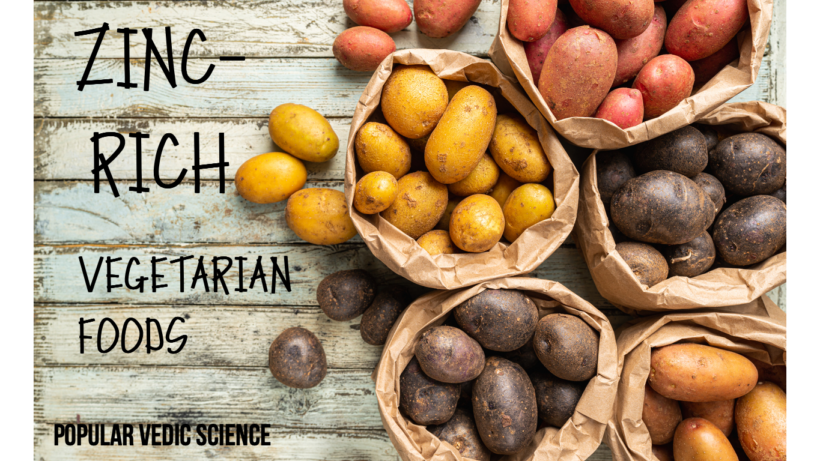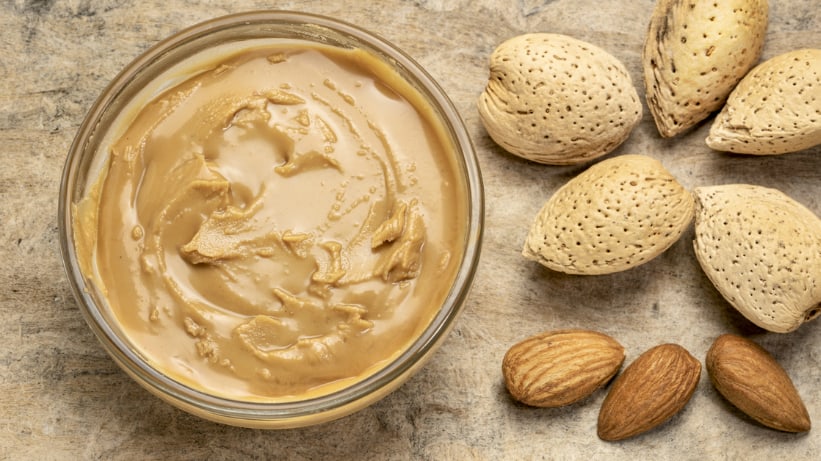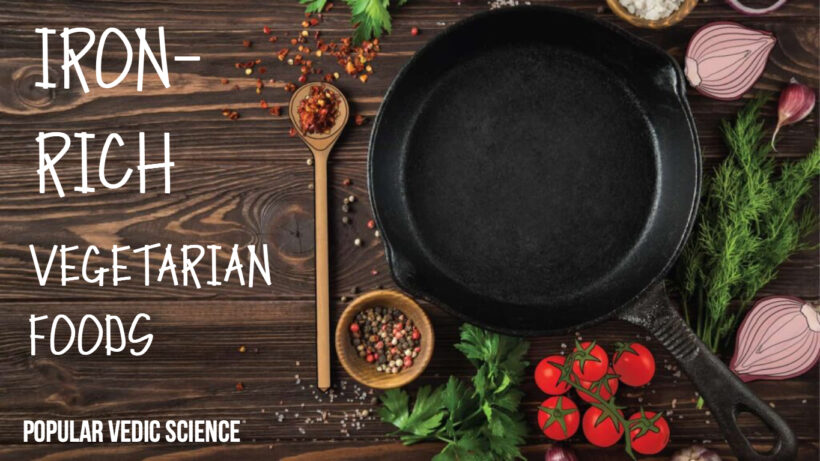 The portion of the Vedas which deals with health is known as Ayurveda. Our physical and mental well-being plays a vital role in our ability to live productive and happy lives. But what does it even mean to be healthy? The Śuśruta Samhita gives the following definition:
The portion of the Vedas which deals with health is known as Ayurveda. Our physical and mental well-being plays a vital role in our ability to live productive and happy lives. But what does it even mean to be healthy? The Śuśruta Samhita gives the following definition:
samadosa samagnisca samadhatumalakriyah | prasannatmendriyamanah svastha ityabhidiyate ||
One who is established in the Self, who has balanced doshas (primary life force), balanced agni (digestive fire), properly formed dhatus (body tissues), proper elimination of malas (waste products), well-functioning bodily processes, and whose mind, soul, and senses are full of bliss, is known as a healthy person.
In other words, health is the natural state of the human mind and body when the mental and physiological systems are nourished and balanced. Disease, on the other hand, arises due to imbalance in the body and mind, caused by adverse environmental factors, unhealthy lifestyle choices, or harmful eating habits.
Discover more: Check out our article, What is Ayurveda?
The Doshas
According to the science of ayurveda, all bodies contain a combination of three doshas, or biological humors: Vata, Pitta, and Kapha. Most of us have a single prominent dosha which determines our physiological makeup, strengths, weaknesses, and overall personality.
Once we gain an understanding of our individual constitution and learn how the doshas interact with one another, we can map out the best-suited diet and lifestyle regime for living a functional and harmonious life.
Diet & Nutrition
Ayurveda turns the diet and nutrition culture of the West on its head. Rather than a one-size-fits-all approach, Ayurveda begins by looking at the makeup of an individual on a physical and emotional level. With this in mind, specific foods and habits are recommended to harmonize your unique physiological needs. Simply by making small adjustments in your eating habits, you can experience drastic improvements in your overall health and well-being.
Don’t Know Your Dosha? Take our simple quiz.
Seasonal Health
Did you ever notice that more people tend to get sick during times of seasonal transitions? This is because our external environment plays a big role in our overall health. It takes time for our internal environment in the body to adapt. Ayurveda offers helpful tips for supporting our body during this time of transition. Take advantage of these suggestions and take extra care of yourself during times of seasonal change so that you can continue to operate at full health!
Herbs & Spices
Herbs are Mother Nature’s best medicine. The Ayurvedic science utilizes more than 600 herbal formulas combining more than 250 herbs and spices to treat diseases from cancer to diarrhea. Unfortunately, in the modern age, pharmaceutical companies have no incentive to promote herbal remedies. Why? Because herbs can’t be patented and sold at outrageous prices like synthetic medicines. Nonetheless, many scientists have in recent times conducted studies on such Ayurvedic super-herbs as Turmeric, Ashwagandha, and more.
Below you’ll find our guides to some of the most popular and effective Ayurvedic herbs. Before adding herbal supplements to your diet, it is recommended to consult an experienced Ayurvedic physician.
| Amalaki | Arjuna | Ashwagandha | Bala |
| Bhringaraj | Brahmi | Chyawanprash | Gotu Kola |
| Manjistha | Neem | Pippali | Shatavari |
| Trikatu | Triphala | Turmeric |
General Health
No matter what is your body type or dosha, everyone can benefit from simple lifestyle practices that support a healthy mind and body. Below you’ll find articles introducing topics in Ayurveda, as well as articles on basic aspects of healthy living.
Ayurveda Basics
- What is Agni?
- What is Ama?
- What is Ojas?
- Benefits of Self-Massage (Abhyanga)
- What is Panchakarma?
- Nourishing the Body: The 7 Dhatus
- Dinacharya: Your Optimal Daily Routine
- Ritucharya: Seasonal Living
- Benefits of Shirodhara
The Doshas
- Dietary Tips for Vata
- Dietary Tips for Pitta
- Dietary Tips for Kapha
- Vata Meal Plan
- Pitta Meal Plan
- Kapha Meal Plan
Exercise & Physical Health
- What is a Circadian Rhythm?
- 7 Benefits of Daily Exercise
- How to Stay Active When You Don’t Have Time
- 7 Benefits of Daily Exercise
- What is a Runners High?
- 8 Reasons to Spend More Time Outdoors
- 4 Reasons to Start a Fitness Journal
- 3 Reasons to Cook for Yourself
- 4 Tips for Getting a Good Nights Rest
- Why a Sleep Schedule is Important for Health
- 3 Reasons to Start a Chronic Pain Journal
- What Does Good Posture Look Like?
- 8 Consequences of Bad Posture
- Tips to Improve Your Posture
- 5 Benefits of Good Posture
- 5 Exercises for Better Posture
Brain & Mental Health
- The Importance of the Brahma Muhurta
- How to Improve Your Morning Routine
- 5 Reasons to Start a Meditation Journal
- How to Live in the Present Moment
- What is Forest Bathing?
- 10 Tips for Immediate Stress Relief
- 4 Ways to Boost Your Brain Power
- How to Read More Books this Year
- 4 Reasons to Start a Reading Journal
- The Power of Continuous Learning
- How to Write a Journal Entry
- 4 Tips for Keeping a Daily Journal
- 4 Reasons to Start a Journal
- 12 Strategies for Learning New Skills Quickly
- 5 Reasons to Start an Art Journal
- 4 Reasons to Start a Photo Journal
- Why Everyone Should Try a Digital Detox
- 6 Good Reasons to Watch Less TV
- 8 Tips for a Clutter Free Life
- What is the Konmari Method of Tidying Up?
- How to Declutter Your Home
- How to Declutter Your Workspace
- 8 Ways Clutter Impacts Productivity
- 6 Productivity Tips to Change Your Life
- 4 Reasons to Start a Work Journal</li
- 9 Bad Habits that Sap Productivity
- 5 Steps for a Better Work-Life Balance
- 7 Strategies to Avoid Burnout at Work
- 9 Reasons Why Multi-tasking Doesn’t Work
- 10 Ways to Quit Procrastinating
- 13 Tips to Increase Your Productivity
- 9 Ways to Boost Your Confidence
- 8 Reasons to Start a Gratitude Journal
Interpersonal Health
- 5 Ways to Make Friends as an Adult
- How to Build Better Work Relationships
- 5 Benefits of Couples Journaling
- 9 Tips for Effective Communication
- What is Nonverbal Communication?
- What is Active Listening?
- What is Reflective Listening?
Food & Fasting
- 5 Reasons to Start a Food Journal
- What Does it Mean to be Vegetarian?
- 10 Tips for Becoming Vegetarian
- 5 B12-Rich Vegetarian Foods
- 10 Calcium-Rich Vegetarian Foods
- 6 Omega-3-Rich Vegetarian Foods
- What is the Difference Between Being Vegetarian and Vegan?
- What is a Flexitarian Diet?
- What are Superfoods?
- 6 Foods That are Healthier Cooked
- 6 Reasons to Eat Less Processed Food
- 8 Benefits of a Caffeine Detox
- 5 Reasons to Give Up Caffeine
- What is a Cleanse?
- Cleanses for Weight Loss
- The 5 Best Detox Cleanses
- The 5 Best Soup Cleanses
- Benefits of a Parasite Cleanse and How to Try One
- Benefits of a Liver Cleanse and How to Try One
- Benefits of a Colon Cleanse and How to Try One
- Benefits of a Juice Cleanse and How to Try One
- What is a Fast and Why do People do Them?
- 10 Frequently Asked Questions About Fasting
- How to Do a 24-hour Fast
- 5 Easy and Safe Ways to Try Fasting
- 5 Benefits of Fasting and How to Start
- What is Water Fasting?
- 7 Results of Water Fasting
- What is the Keto Diet?
- Fasting in Hinduism
- Fasting in Judaism
- Fasting in Christianity
- Fasting in Islam
 What is Vata Dosha?
What is Vata Dosha? What is Pitta Dosha?
What is Pitta Dosha? What is Kapha Dosha?
What is Kapha Dosha? Vata Lifestyle Tips
Vata Lifestyle Tips Pitta Lifestyle Tips
Pitta Lifestyle Tips Kapha Lifestyle Tips
Kapha Lifestyle Tips Healthy Food Combinations
Healthy Food Combinations Zinc-Rich Vegetarian Foods
Zinc-Rich Vegetarian Foods Protein-Rich Vegetarian Foods
Protein-Rich Vegetarian Foods Iron-Rich Vegetarian Foods
Iron-Rich Vegetarian Foods Guide to Summer
Guide to Summer Guide to Autumn
Guide to Autumn Guide to Winter
Guide to Winter Guide to Spring
Guide to Spring